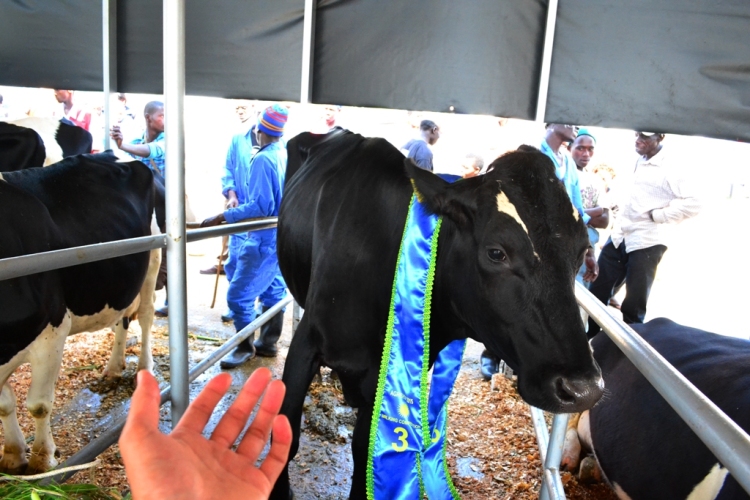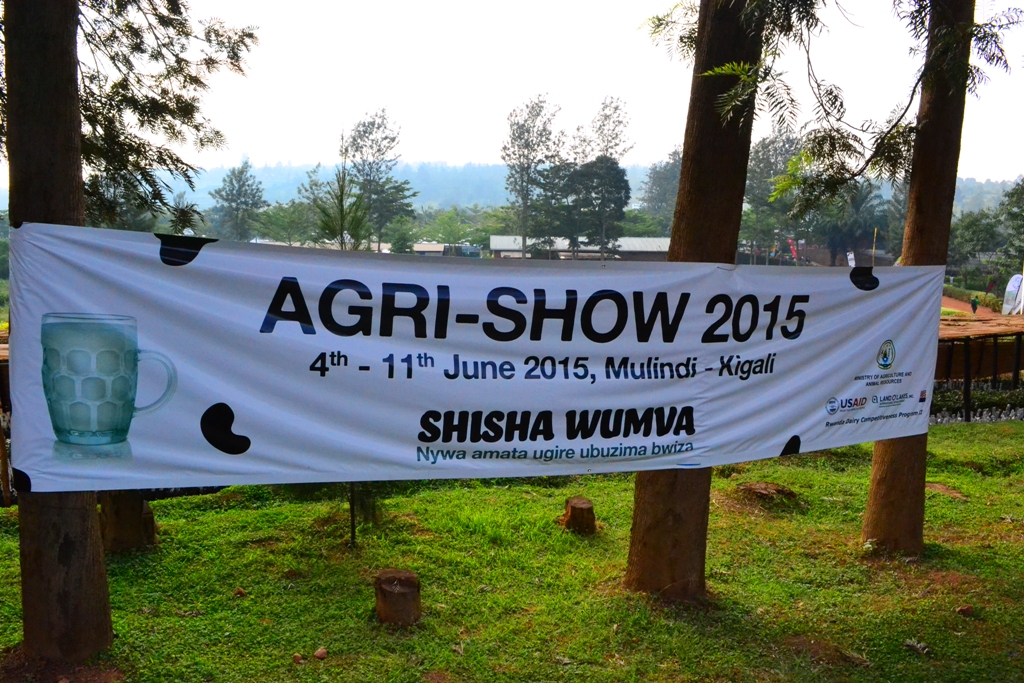Earlier in June, I attended the 10th Agriculture Show organised by the Rwanda Agriculture Board. It’s an agriculture expo where all the agriculture-related players and stakeholders in the country come and present their work and projects. It was well organised, and I was able to meet several interesting people including officials from NGOs and Ministry of Agriculture and Livestock Resources.
On a fun note, I accompanied Patrick – the chairman of the milk coop that I have been working for in Rwamagana – who was invited to participate in the dairy cow competition. The competition rule is straightforward: a cow that produces the most volume of milk wins. After much anticipation, the results came out, and Patrick’s cow (her name is Kakazi, and it means ‘fine lady’) won the third prize. She is the third best milk producing cow of the year (with an average of 9.7 Litre per milking). The first two cows were pure exotic breed (Friesian) but Kakazi was a cross-breed (a 7th generation cross between a local Ankole and Friesian cow).

Up close with Kakazi 
And the winner is…Kakazi! 
Kakazi and Patrick
The objective of this competition was to showcase the potential milk yields of different breeds of dairy cows. The higher milk yielding dairy cows (exotic breeds) are currently promoted by the government as a technological (genetic improvement) solution to accelerate the modernisation and transformation of the dairy sector.

Congratulations Patrick and Kakazi! 
The competition is on… 
Let the milk weighing begin!
On the other hand, there is also a renewed interest in protecting and conserving the local breeds especially the Inyambo. Inyambo cows are the traditional breed that represents the beauty and symbol of the old Kingdom. Some of the traditional dance moves are inspired by the shape of their horns (see picture: notice the dancers’ arms mimicking cow horns).

Inyambo cows and the cowboy singing and praising the herd
Although the cow’s value and place in Rwandan culture have changed in the new social order and economic context, I can’t deny the fact that the cows are still king (or I should instead say queen) in Rwandans’ mind and heart. There are traditional greeting and expressions that capture this essence very well:
“Gira’inka.” (I wish you a cow | Have yourself a cow) – A traditional greeting.
“Yampayinka! (This one is hard to translate, but the closest equivalent would be: Holy Cow!) – When you receive a gift of a cow from a friend, family or even stranger, you would exclaim this expression with the utmost surprise and gratitude. Holy cow, who wouldn’t be!

Time to celebrate the win – dancing with the Intore dancers 
Yes…I’m trying… 
Asking Patrick to join the dance – but he preferred to sit and watch me embarrassing myself!

